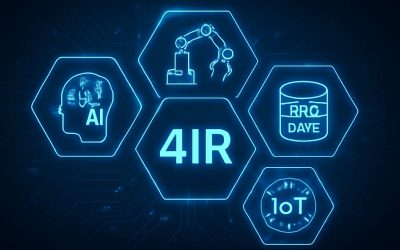
The Fourth Industrial Revolution, or Industry 4.0, is a term describing the rapid influx of innovative technologies and processes that are changing the world of work. It is also called the digital revolution because of its premise on super-fast connectivity. In its simplest form, 4IR can be described as an influx of new technologies that creates opportunities and enhances growth. However, the impact of 4IR on society and the economy has been unclear. There is a need to gain a better understanding of the technology and principles behind it.
Despite the rapid pace of change, there is a paucity of research focusing on the implications of 4IR in the education sector. This study aims to shed light on the perspectives of academics and senior management on the topic. Researchers used qualitative methodology to gather data from 7 purposively selected academic staff. Through semi-structured interviews, they sought to understand the meaning of 4IR in the university setting.
The purpose of the study was to determine how the principles behind the Fourth Industrial Revolution influence the way academics and senior management at one South African Higher Education Institution (HEI) implement it. Specifically, the researcher sought to explore the impact of the Fourth Industrial Revolution on teaching and learning. While the benefits of 4IR are clear, the implications of its implementation in an education context are not well known.
The study also aimed to evaluate the impact of a national lockdown on the adoption of 4IR. The ensuing pandemic forced the university to implement an online learning system and re-evaluate its teaching and learning practices. Additionally, participants highlighted the importance of integrating future-fit strategies into course content. A key element of the study was the application of Edgar Schein’s theoretical framework. By using this framework, researchers were able to extract richer understanding of the principles behind the Fourth Industrial Revolution.
Overall, the study concluded that the most effective implementation of 4IR at a university is driven by its leadership. Several factors contribute to its adoption, including the university’s culture, its drive and the technological advancements it has made. Furthermore, the research identified some key sub-themes that will likely be of interest to educators. For example, defining 4IR, implementing it, and its emotional and emotional-response aspects.
The findings of this study demonstrate that, in a South African context, the Fourth Industrial Revolution was a relatively small feat. Although the concept was introduced by the Vice-Chancellor, it was ultimately driven by all members of the university. Participants noted that their university had adopted an ambitious and competitive culture. They credited this culture with its positive effects on 4IR uptake. These results have important practical implications for the HEI and the wider education sector.
Overall, the findings of this study indicate that the principles behind the Fourth Industrial Revolution have the potential to foster a range of social and economic benefits. However, there are also significant challenges that must be addressed before the full benefits of the technological advancement can be realized. Some of these include access, affordability, and adoption. Other issues to be tackled include data protection, cybersecurity, and legislative matters.



0 Comments